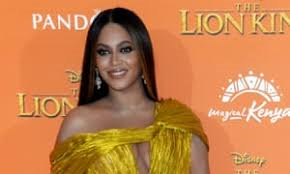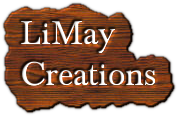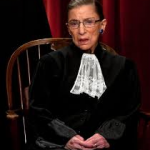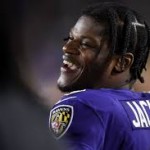Beyonce
Beyoncé’s ‘Lion King: The Gift’ Suggests a New Direction — and a New Challenge
via:Rollingstone
On Tuesday, Beyoncé announced the tracklist for The Lion King: The Gift, an album that will accompany the remake of the famous Disney animated film, which opens Friday. Some familiar collaborators will be joining Beyoncé (Jay-Z, Pharrell), but the tracklist is notable for also including stars from Nigeria, Ghana and South Africa, who rarely get exposure in the American mainstream.
This suggests a new direction for Beyoncé, and maybe a new challenge. In recent years, singers from West and South Africa have repeatedly been thwarted when they attempt to crack the narrow-minded American market. “Nobody has properly broken an African act in the U.S.,” the Nigerian star Mr. Eazi, who also contributed to The Lion King: The Gift, told Rolling Stone last year. With the backing of Beyoncé and a Hollywood marketing budget, though, that may change.
“[The album] is gonna create a new awareness,” promises E-Kelly, a Nigerian producer who has worked with Mr. Eazi and Wizkid. “People who have never heard any afrobeats, this is going to be their first experience of hearing something real from the culture.”
“It’s a tipping-point moment,” adds Tuma Basa, Director of Urban Music at YouTube, and the man who created the African Heat playlist during his previous job at Spotify.
Many overenthusiastic pundits thought afrobeats had hit its tipping point three years ago, when Drake’s “One Dance,” featuring vocals from the Nigerian singer Wizkid, became a runaway hit. Streaming was beginning to flex its border-vaporizing might, and one of pop’s biggest stars was embracing Nigerian music. The moment seemed ripe for crossover, and labels moved quickly to ride Drake’s coattails. “Afrobeats artists were having such a buzz after the Wizkid thing,” says Julian Jones-Griffith, a manager who works primarily with dancehall acts.
One of the beneficiaries of the buzz was the Nigerian singer Tekno, who signed a multi-single deal with Columbia Records. Tekno had a killer hit in Nigeria: “Pana” was pretty and propulsive, with liquid guitars, an insistent, thunking beat, and a track record of streaming abroad to boot. But “Pana” died on the vine in the U.S. “Historically there’s been a basic blueprint for records from other cultures to cross over [into America],” says Jones-Griffith. “They all have a hook that everyone can understand, and most importantly sing along to,” he adds, pointing to Serani’s “No Games,” Gyptian’s “Hold Yuh,” and even “Ye,” by the Nigerian singer Burna Boy, which has amassed 10.5 million streams in the U.S. this year. But the “Pana” chorus is about cassava, a reference that may not connect with the average American.
It’s not just about the hook: There are also very few outlets where music from Africa can gain exposure in America. Today, the U.S. music industry mostly relies on streaming as a signal of popularity. But African listeners are not always able to signal their enthusiasm for their homegrown stars in a way that American market analysts can understand.
That is, in large part, because of the digital divide, which hampers streaming activity in some countries. “You could hear an Olamide record, he’s one of the biggest rappers in Nigeria right now, and you go on Spotify and see 2 million streams,” explains Mr. Eazi. “Go on YouTube and you see ten million views. But that’s maybe just 10% of the people who are consuming music. 70% of the people who are consuming the music are getting the music through the streets. People go to blogs, download the music, and then other people go to those people and pay them for 100 songs, 1,000 songs. Why are they not consuming the songs themselves? Data is still expensive, so they cannot afford it.”
If streaming doesn’t accurately reflect the demand for African music, that means the primary route for these singers to prove themselves is “urban” radio, which mostly plays rap and R&B. But radio is famously risk-averse and wildly competitive. Playlists are narrow and, historically, there are at most one or two slots available for a single from a genre outside of the core of hip-hop and R&B.
So African singers, even the superstars, have to achieve the musical equivalent of shooting an arrow through twelve axe-heads if they want to pick up traction in the U.S. “One Dance” ended up being a breakout pop moment for Drake, not for Wizkid. Unfortunately, “Pana” did not connect in America. RCA signed Wizkid, but was unable to score an American hit from his 2017 album Sounds From the Other Side, even with guest appearances from Drake, Chris Brown, Ty Dolla $ign (twice) and Trey Songz. Kendrick Lamar included gqom, a breakneck style of music from South Africa, on the platinum-selling Black Panther soundtrack in 2018, but it hasn’t done much for the profile of the gqom artist Babes Wodumo in the States.
So it’s not surprising that last summer, Mr. Eazi said it wasn’t even worth it for him to try to break into America. “To work the U.S. is big money — even getting music onto radio in New York alone might cost you upwards of $100 or $200 grand,” he said. With the path so treacherous and the cost so high, why even try?
E-Kelly, however, now sees those failed crossover attempts as playing an important role that he describes as “watering the ground for the infiltration.” And in the last 10 months, it’s undeniable that more West African sounds have infiltrated the American mainstream.
To the extent that North American stars like Drake and Lamar have engaged with African sounds in the past, they have often done so on outlier releases. Drake channeled both afrohouse and afrobeats on More Life, but the release was dubbed “a playlist,” and thus partially walled-off from the rest of his catalog. Similarly, Lamar pushed gqom on a movie soundtrack which sits apart from his endlessly dissected albums. What’s more, the songs on these projects that nodded to African styles were not pushed as singles. These efforts to engage felt secondary and provisional, a one-time boost rather than a sustained investment.
But more recent efforts from artists from both North and South America have pushed the afrobeats sound front and center in their work. Janet Jackson channelled it on her single “Made for Now,” with help from producer Harmony Samuels, who is of Nigerian descent; the track was a top ten hit on Adult R&B radio. (Samuels is also behind another afrobeats fusion, Rotimi’s “Love Riddim,” which could well be a hit if given the chance.)
Last month, the Latin streaming superstars J Balvin and Bad Bunny tackled afrobeats head on with “Como Un Bebé,” a recent collaboration with the producers Legendury Beatz and Mr. Eazi; it’s been streamed over 5 million times in the U.S. in a little over two weeks, according to the analytics company Alpha Data. And the RCA-signed rapper Goldlink recruited both Wizkid and Maleek Berry (a London-based producer-singer of Nigerian descent) for his Diaspora album, which has amassed more than 35 million streams in about a month.
It’s probably not a coincidence that as these acts looked to West Africa, so did American radio. Programmers committed to playing some afrobeats from Nigeria this year — and found that listeners loved it. Davido’s “Fall,” also signed to RCA, became a Top 20 “urban” radio hit nearly 24 months after it was originally released in Nigeria. Afro B’s “Drogba (Joanna)” is now rising as well, earning over 2,000 spins and 14 million audience impressions on “urban” radio stations last week, according to Mediabase.
This means it’s a good time for Beyoncé to throw her weight behind afrobeats’ biggest artists. The Lion King: The Gift includes contributions from a slew of Nigerian stars: Tekno, Mr. Eazi, Wizkid, Burna Boy (now signed to Universal Music Group for publishing and Atlantic as an artist), Yemi Alade and Tiwa Savage. Shatta Wale represents Ghana, while Busiswa and Moonchild Sanelly show up for South Africa.
Like The Black Panther soundtrack, The Lion King: The Gift is a supplementary release in Beyoncé’s catalog — an accompaniment to a film that doesn’t even include this music (except for the solo showcase “Spirit”). Beyoncé, though, does commit harder than Lamar: While only three out of 14 songs on The Black Panther featured vocals from African artists, more than half of The Gift bears a clear African influence. But hardcore Beyoncé fans — and there may not be another kind — may still see the inclusion of more non-Beyoncé voices as a reason to downplay The Gift next to her other work.
Basa doesn’t buy that. “A Beyoncé co-sign is like winning Ohio in the Presidential elections,” he says. But he cautions that afrobeats won’t become popular “overnight” in the U.S. “This is an ongoing process that requires a lot of patience, a lot of development,” Basa adds.
E-Kelly agrees. “This is gonna open a big crack,” the producer says. “It may take a bit longer, but [afrobeats] is soon gonna be a household thing. America is not going to escape the wave.”
By
happy wheels





















